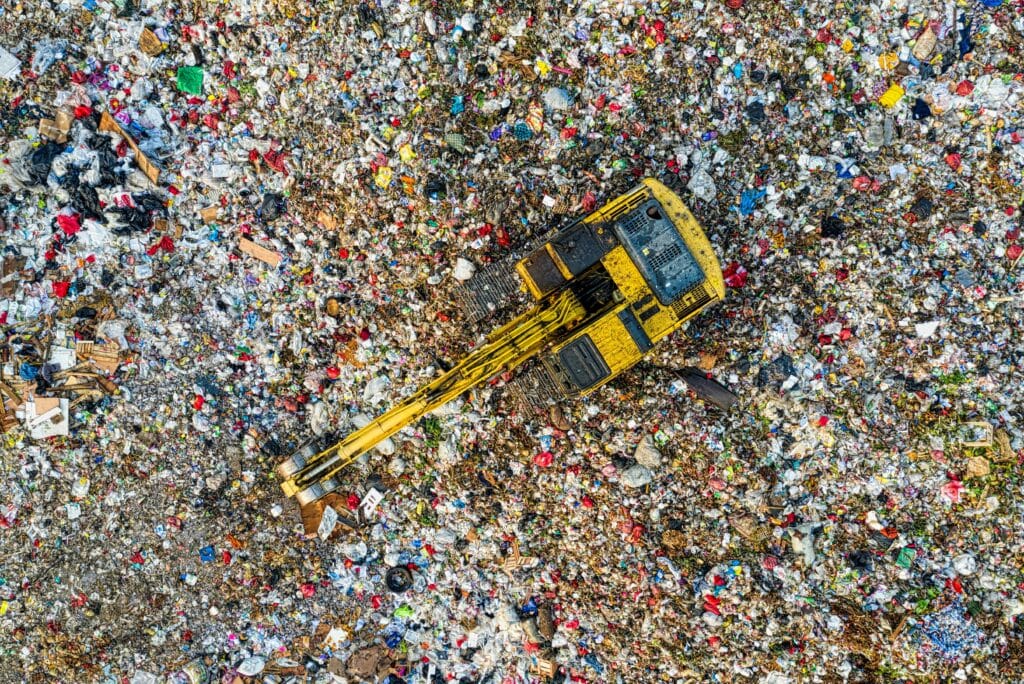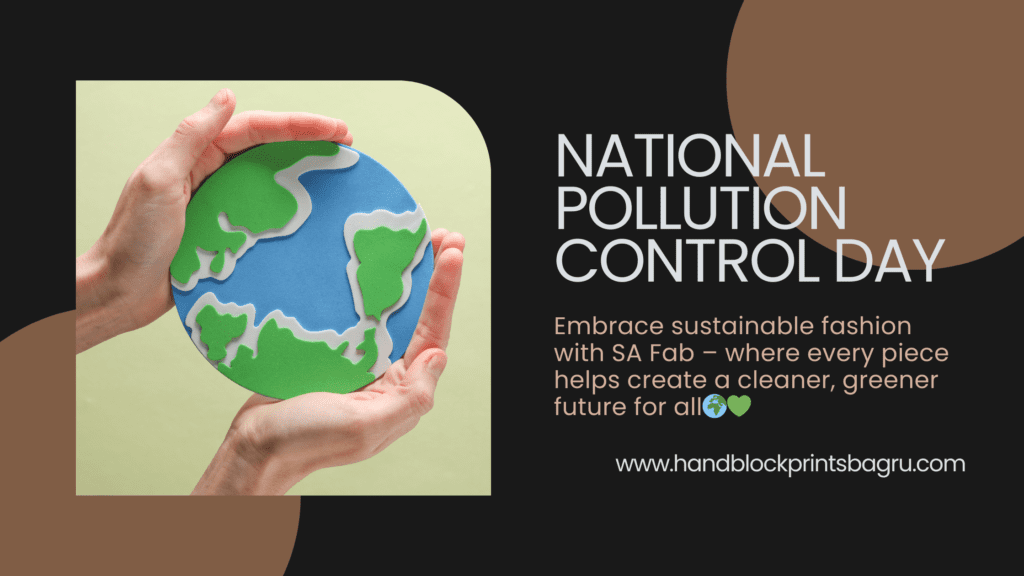National Pollution Control Day 2024: A Call for Clean Air, Green Earth & Sustainable Living
National Pollution Control Day, celebrated every year on December 2nd, serves as an important reminder of the damage pollution has caused to the environment and human health. This day raises awareness about pollution control measures and the need for sustainable living practices. With the ever-increasing air pollution levels, especially in urban areas like New Delhi, it is crucial for individuals, businesses, and governments to take proactive steps toward reducing pollution. As part of this, industries, including fashion, are being urged to adopt eco-friendly practices to reduce their environmental footprint.
History of National Pollution Control Day
National Pollution Control Day has significant roots in India’s environmental history. Established in 1984, the day commemorates the victims of the Bhopal Gas Tragedy, one of the most catastrophic industrial accidents in the world. On the night of December 2-3, 1984, a gas leak at the Union Carbide pesticide plant in Bhopal, Madhya Pradesh, led to the deaths of thousands and affected the health of many others. This disaster highlighted the severe lack of proper pollution control measures in industries and spurred the implementation of more robust environmental regulations.

Since then, National Pollution Control Day has been observed annually to encourage better pollution control methods, raise awareness, and inspire action to safeguard our environment.
National Pollution Control Day 2024 Theme
The theme for National Pollution Control Day 2024 is ‘Clean Air, Green Earth: A Step Towards Sustainable Living.’ This theme underlines the pressing need to reduce pollution and promote eco-friendly practices to create a cleaner and greener planet. The focus is on sustainable living, cleaner air, and a healthier environment for all.
The Impact of Air Pollution and How We Can Reduce It
Air pollution is one of the most critical environmental issues facing us today. Poor air quality in urban areas is linked to respiratory diseases, heart problems, and even premature deaths. It is essential for both individuals and governments to address air pollution by adopting the following practices:
1. Switch to Renewable Energy Sources
The most effective way to reduce air pollution is by transitioning from fossil fuels to renewable energy sources such as solar, wind, and hydroelectric power. These alternatives do not emit harmful pollutants, helping reduce carbon footprints and safeguard the environment.
2. Promote Public Transportation and Electric Vehicles
Encouraging the use of public transportation and electric vehicles (EVs) can significantly reduce air pollution. By investing in infrastructure such as bus and train systems, as well as EV charging stations, we can decrease the number of gasoline-powered vehicles on the road and their harmful emissions.
3. Encourage Green Spaces and Urban Planning
Urban planning should prioritize the inclusion of green spaces like parks, trees, and vegetation, which act as natural air filters, absorbing harmful pollutants and improving air quality. Green infrastructure, such as green roofs and tree-lined streets, is vital for a healthier urban environment.
4. Promote Energy-Efficient Practices
Individuals play an important role in reducing air pollution by adopting energy-efficient practices. From using energy-efficient appliances to reducing unnecessary energy consumption, these actions collectively reduce the reliance on polluting energy sources.
5. Reduce Waste and Promote Recycling
Waste incineration is a significant contributor to air pollution. By minimizing waste generation, increasing recycling efforts, and composting organic materials, we can reduce harmful emissions and help preserve air quality.
Fast Fashion and Its Role in Environmental Pollution
The fast fashion industry is one of the primary contributors to pollution worldwide. It generates excessive textile waste, uses harmful chemicals in dyeing, and consumes significant amounts of water and energy, which leads to high carbon emissions. Fast fashion’s unsustainable practices result in pollution at various stages of the garment lifecycle, from production to disposal.

At SA Fab, we are committed to reducing the environmental impact of fashion. We focus on sustainable fashion by using eco-friendly fabrics, natural dyes, and traditional techniques like block printing. This approach helps reduce waste, conserve water, and eliminate harmful chemical usage. Our products, such as Crop Top Lehengas, Rajasthani Lehenga Cholis, Cotton Suits, and home furnishing items, are crafted with love and care, keeping both style and sustainability in mind.
How SA Fab is Contributing to a Greener Future
As a responsible fashion brand, SA Fab is actively working to address the pollution caused by the fashion industry. Our commitment to sustainability includes:
- Using eco-friendly fabrics and natural dyes to reduce chemical waste.
- Supporting traditional artisans and techniques like block printing that have minimal environmental impact.
- Offering long-lasting, quality products that discourage fast fashion consumption and promote mindful purchasing.
- Prioritizing sustainable practices in our production process, packaging, and distribution methods.
- By choosing SA Fab, you’re making a conscious choice for the planet, supporting sustainable fashion, and contributing to the reduction of pollution.
Conclusion
National Pollution Control Day 2024 calls for collective action to protect our environment. From reducing air pollution to adopting sustainable practices, every individual and industry has a role to play in creating a cleaner, greener world. As a fashion brand, SA Fab is proud to be a part of this global effort by creating environmentally friendly products that reduce the impact of fast fashion. Let’s all come together to embrace sustainable living and make a positive difference for our planet’s future.
FAQs
National Pollution Control Day was established in 1984 to honor the victims of the Bhopal Gas Tragedy. It highlights the importance of pollution control and encourages sustainable practices to protect the environment.
The theme for 2024 is ‘Clean Air, Green Earth: A Step Towards Sustainable Living,’ focusing on reducing pollution and promoting eco-friendly lifestyles.
Fast fashion contributes to pollution through excessive textile waste, chemical usage, water consumption, and carbon emissions. It promotes unsustainable production practices that harm the environment.
SA Fab reduces environmental impact by using eco-friendly fabrics, natural dyes, and traditional techniques like block printing, promoting sustainable fashion practices.
